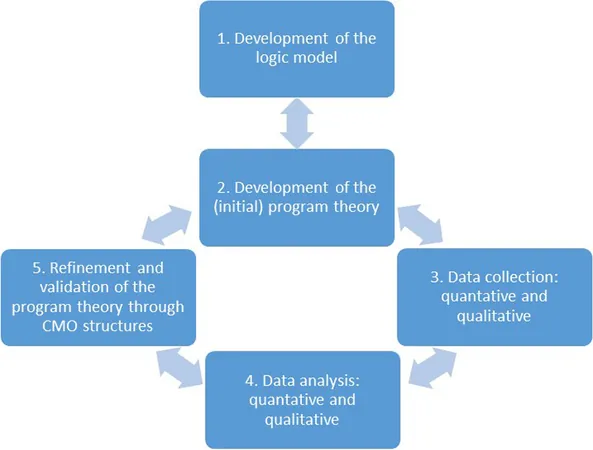
Bridging the Health Gap: A Revolutionary Integrated eHealth Approach for Low-Income Individuals
2024-10-03
In the Battle Against Health Disparities, a New Approach Emerges!
Across the globe, health disparities are glaringly evident based on socioeconomic status. Individuals in lower socioeconomic positions (SEPs) are confronted with unhealthy behaviors and unfavorable living conditions that significantly increase their risk of developing non-communicable diseases. Fortunately, adopting healthier lifestyles, such as enhanced physical activity, improved nutrition, reducing stress levels, curbing alcohol consumption, and quitting smoking, can potentially mitigate these health disparities.
Revolutionizing Health with eHealth Solutions!
eHealth interventions have rapidly gained traction as innovative tools for behavior change within the healthcare landscape. These potentially affordable and personalized solutions enable improved self-management of health. However, engaging effectively with these eHealth tools hinges on individuals' self-efficacy—their ability and confidence to participate actively in their care. For those in lower SEP groups, adverse living conditions can act as barriers to accessing and using these resources effectively.
Despite the demonstrated efficacy of eHealth interventions among higher SEP demographics, their impact remains significantly curtailed among lower SEP communities. This inequality is compounded by a digital divide that inhibits access to essential technology and the internet—barriers that are often exacerbated by low income and limited education, which also correlate with reduced digital skills and health literacy.
Unlocking Potential Through Tailored Interventions!
Recent research highlights the promise of tailored eHealth interventions specifically designed for individuals with low SEP. By addressing barriers related to digital and health literacy and accommodating varying living conditions, these personalized approaches can enhance engagement and adherence to healthy lifestyle changes.
One critical aspect emerging from the literature is the importance of support from healthcare professionals. As trusted guides, they not only encourage behavior change but also ensure that vulnerable groups are advised on the most suitable and effective eHealth applications.
Introducing the PIE Approach: A Game-Changer for Lower SEP Groups!
In the Netherlands, healthcare professionals have pioneered the Preventive Integrated eHealth (PIE) approach tailored for individuals with lower SEP. This innovative four-step blended care model combines both online eHealth tools and face-to-face consultations to maximize its impact. The steps are as follows:
1. **Proactive Invitations:** Care professionals actively invite participants from lower SEP backgrounds, ensuring that those who might otherwise hesitate to seek preventive care are included.
2. **Personalized Health Assessment:** Participants fill out an eHealth questionnaire that generates a customized health report, revealing insights about their health behaviors.
3. **Tailored Consultation:** A follow-up meeting with a healthcare professional allows the participants to discuss their health report and set personalized goals that consider their resources and challenges.
4. **Active Referrals to Local Support Services:** Participants are directed toward local health and social care resources for ongoing support in managing their health.
Researching Impact and Effectiveness with Realist Evaluation!
To thoroughly understand the dynamics of the PIE approach, researchers are employing a realist evaluation methodology. This innovative research design enables an exploration of "what works for whom, in what circumstances, and why?"—providing insights into the mechanisms that encourage engagement with eHealth interventions among lower SEP individuals.
As part of this evaluation, the researchers will gather quantitative data through surveys assessing health literacy, lifestyle behaviors, and perceived stress levels. Additionally, qualitative data will be obtained from interviews with healthcare professionals and focus group discussions with participants, enriching the overall understanding of the intervention's impact.
A Health Revolution in Progress
The PIE approach holds significant potential for bridging the health gap for lower SEP groups, offering comprehensive support that aligns with their unique needs and circumstances. As public health initiatives increasingly prioritize health equity, understanding what drives successful behavior change in vulnerable populations is vital. This innovative study could pave the way for similar eHealth interventions globally, revolutionizing how we approach health management for individuals facing socioeconomic challenges.
Stay tuned as we follow the developments from the PIE project and explore new frontiers in healthcare access and equality. Will this integrated eHealth solution offer the lifeline needed for many struggling communities? The answer could change the landscape of health for generations to come!


 Brasil (PT)
Brasil (PT)
 Canada (EN)
Canada (EN)
 Chile (ES)
Chile (ES)
 España (ES)
España (ES)
 France (FR)
France (FR)
 Hong Kong (EN)
Hong Kong (EN)
 Italia (IT)
Italia (IT)
 日本 (JA)
日本 (JA)
 Magyarország (HU)
Magyarország (HU)
 Norge (NO)
Norge (NO)
 Polska (PL)
Polska (PL)
 Schweiz (DE)
Schweiz (DE)
 Singapore (EN)
Singapore (EN)
 Sverige (SV)
Sverige (SV)
 Suomi (FI)
Suomi (FI)
 Türkiye (TR)
Türkiye (TR)